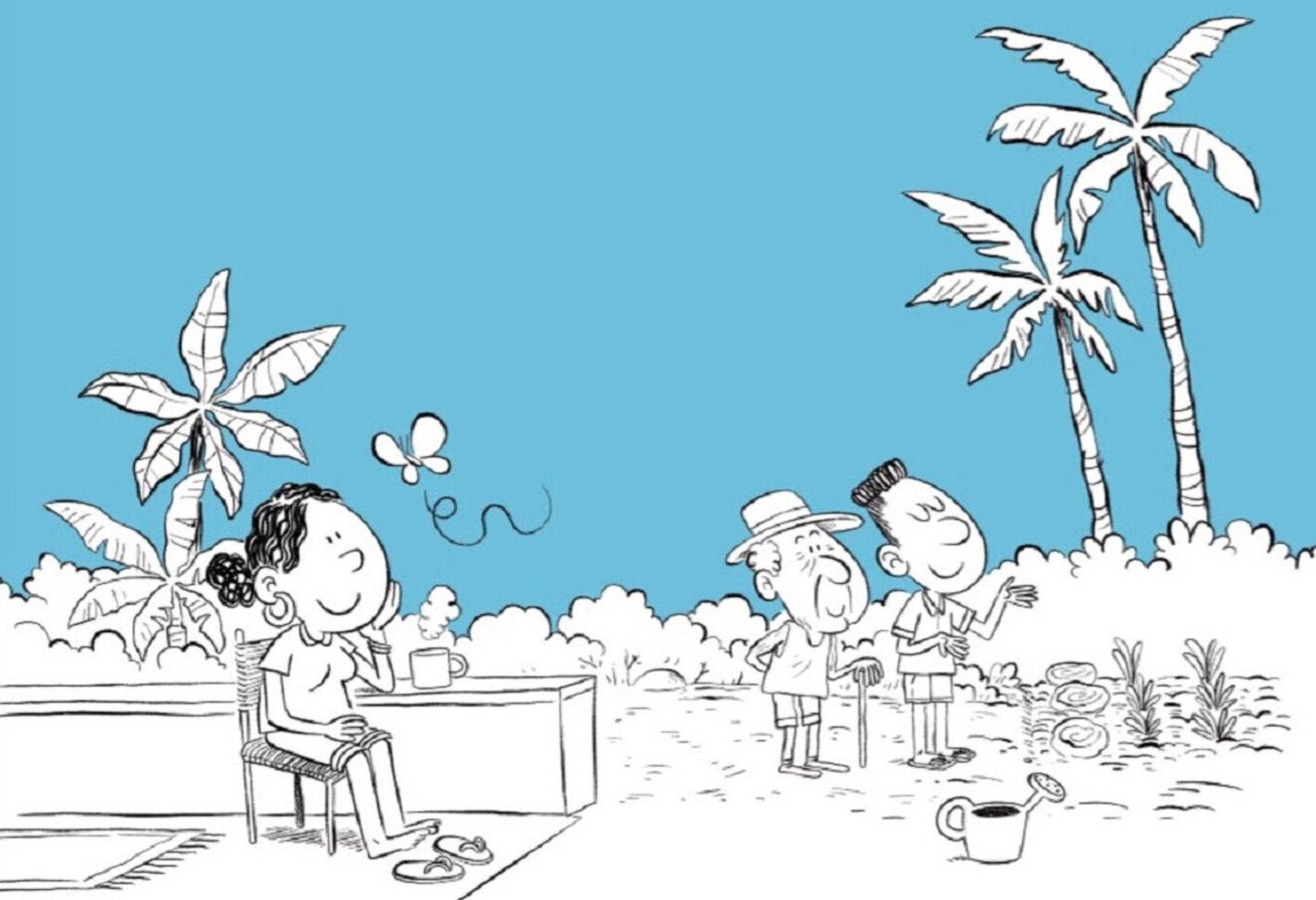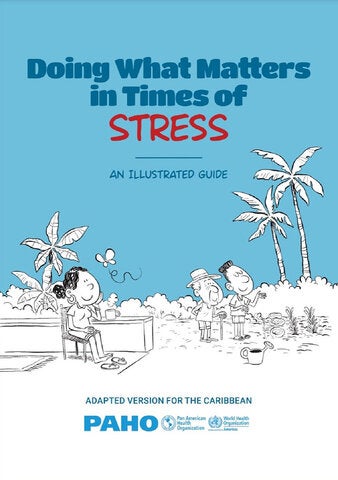
Bridgetown, Barbados - 17 January 2022 - The World Health Organisation’s mental health management guide 'Doing what matters in times of stress', has been adapted for the Caribbean and is now readily accessible to the region. It features relatable and simple activities, designed to help people of all ages to cope with adversity and better manage stress.
The guide was launched on Friday, January 14, by the Pan American Health Organisation (PAHO) and the Caribbean Development Bank (CDB), to answer the call to prioritise mental health service delivery. Mental health services form a key area of the region’s COVID-19 response, particularly because of the many difficulties caused by the pandemic. These include mental pressures associated with job loss, restricted face to face education, violence and illness.
“Unfortunately, many of the existing mental health services have been disrupted because of the pandemic, with people getting less access to counselling, mental health care and even education where needed – these are all sources of stress that we are facing today, and PAHO has consistently called on countries and societies to prioritise mental health in such difficult times,” Dr Renato Oliveira Souza, Unit Chief, Mental Health and Substance Use PAHO/ WHO, advised.
The launch featured a panel discussion with Mr Dean Chambliss, PAHO/WHO Subregional Program Director, Dr Claudina Cayetano, Regional Advisor for Mental Health, PAHO/WHO, and Dr Martin Baptiste, Senior Operations Officer, Social Sector Division, CDB.
“Here in the Region of the Americas, depression continues to be the leading mental health disorder, and twice as frequent in women than in men. However, resources allocated by countries to tackle this burden, are often insufficient. Multisectoral collaboration and partnerships are therefore critical to tackle mental health challenges and promote mental well-being,” Mr Chambliss said.
Dr Baptiste corroborated his sentiments and noted that in 2018, CDB and PAHO agreed to deliver a joint project with the aim of building regional capacity for mental health and psychosocial support in disaster management. That project came in the wake of the unprecedented devastation of experience with the passage of Hurricanes Irma and Maria in 2017. “Of course, none of us could have imagined that just two years on, we would be in this unchartered territory that COVID-19 has presented. If anything, the pandemic has underscored the importance of personal resilience. It is also a key requirement for sustainable human development,” Dr Baptiste noted.
The publication is a joint effort that addresses gaps in mental health service support, by promoting access to credible, easy to learn management activities to reduce stress. The guide has five sections that focus on different techniques to cope with stress. Readers can go through the sections of the video library in a self-paced manner, or read through the book, taking time to practice the exercises and use the learning in the time in between.
“The primary preparation is to purposefully allocate time to read the book or listen to the audiobook, and to find time and space to apply the learning and practice the techniques offered – remember that the techniques and actions offered are evidence-based,” Dr Cayetano instructed.
The expert discussion, moderated by Lisa Bayley, Communications Consultant PAHO/ WHO, is available for viewing on PAHO Caribbean’s Facebook and the Twitter Account.
The guide ‘Doing what matters in times of Stress’ along with other useful mental health tools are available via PAHO Caribbean’s website.
The video exercises are available here: Doing What Matters in Times of Stress: An Illustrated Guide. Adapted Version for the Caribbean - Exercises.
Additional useful information is available here: mental health and psychosocial support.
Contact
Lisa Bayley, Subregional Program Coordination, Caribbean, PAHO/WHO - Email: bayleylis@paho.org
Lothar Mikulla, Communications Officer, Caribbean Develop Bank - Email: mikullal@caribank.org
About the Pan American Health Organisation
The Pan American Health Organization (PAHO) works with the countries of the Americas to improve the health and quality of life of its population. Founded in 1902, it is the world’s oldest international public health agency. It serves as the Regional Office of WHO for the Americas and is the specialized health agency of the Inter-American system.
The PAHO Subregional Program is responsible for providing subregional technical cooperation and to strengthen PAHO’s engagement with the Caribbean Subregional integration mechanisms, the Caribbean Community (CARICOM) and its various bodies and organs; and to build synergistic partnerships with the subregional institutions such as the Caribbean Public Health Agency (CARPHA) and the University of the West Indies (UWI), among others. PAHO’s subregional technical cooperation specifically focuses on public health issues which would benefit from economies of scale and for which agreement on proposed collective responses and actions would produce a far greater impact rather than individual country responses. The Subregional Program also plays a role in coordinating among the different PAHO country offices.
About the Caribbean Development Bank
The Caribbean Development Bank is a regional financial institution established in 1970 for the purpose of contributing to the harmonious economic growth and development of its Borrowing Member Countries (BMCs). In addition to the 19 BMCs, CDB’s membership includes four regional, non-borrowing members (Brazil, Colombia, Mexico and Venezuela) and five non-regional, non-borrowing members (Canada, China, Germany, Italy, and the United Kingdom). CDB’s total assets as at December 31, 2020 stood at US$3.64 billion (bn). These include US$2.12 bn of Ordinary Capital Resources and US$1.52 bn of Special Funds Resources. The Bank is rated Aa1 Stable by Moody’s, AA+ Stable by Standard & Poor’s and AA+ Negative by Fitch Ratings. Read more at caribank.org




